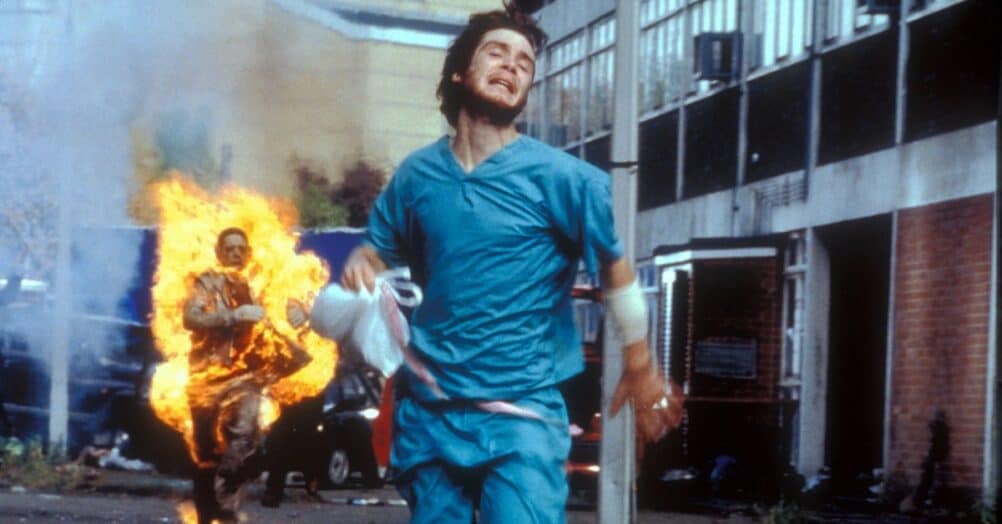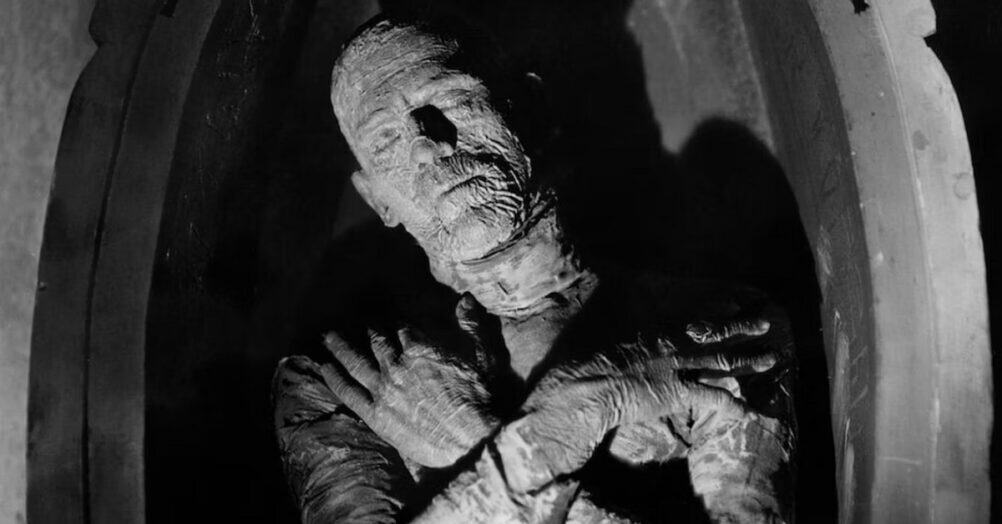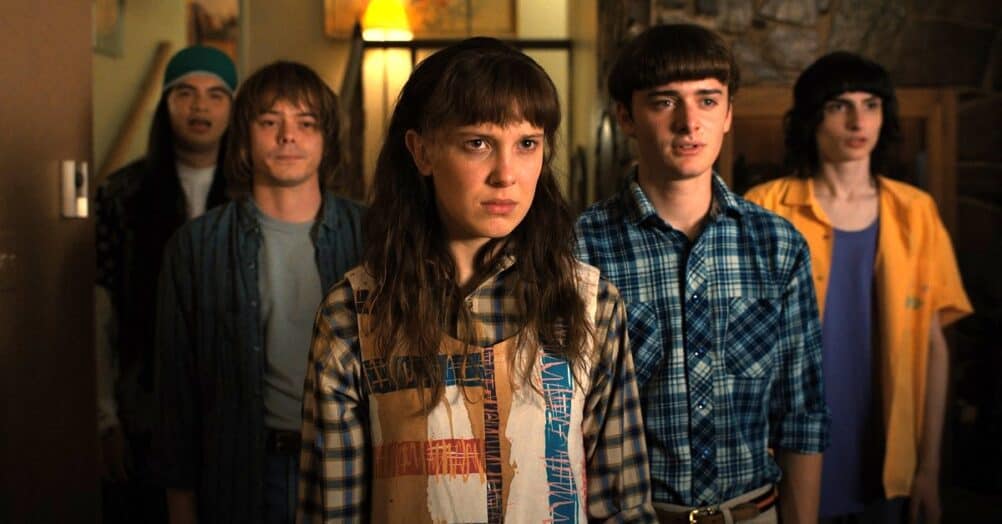Last Updated on August 2, 2021

PLOT: Upon inventing a time travel machine, an amateur physicist named John Beale is suddenly trapped in a causal time loop that pits him against a sexy femme fatale and an evil corporation intent on buying him out.
REVIEW: After a three year stint staking a claim to his name in the kitschy campground of MTV's MY SUPER PSYCHO SWEET 16, writer/director Jacob Gentry returns to the sci-fi realm of his first jointly-crafted feature THE SIGNAL to deliver the solely authored SYNCHRONICITY – yet another puzzling piece of low-budget sci-fi provocation. With an inherently interesting story and a tautly woven script for about 60 pages or so, SYNCHRONICITY starts off quite grippingly, only to suffer the inevitable temporal conundrums of most time travel movies, ultimately devolving into a more of an illogically garbled head-scratcher than a truly exhilarating sci-fi mind-bender. Worse yet, the soldered film noir tropes with time travel tenets are met without an ounce of levity, which makes the overall experience feel far too austere for its own good. So, while the ambition is certainly admirable, the outset intent and actual execution of such, unfortunately, tend to lack SYNCHRONICITY.

Jim Beale (Chad McKnight) is on the brink of proving his time machine works. That is, in order to affirm that time travel is possible, he – along with pals Chuck (AJ Bowen) and Matty (Scott Poythress) – must use their cumbersome steam-punk contraption erected in their basement to open one end of a wormhole. They do so successfully, and soon a rare dahlia suddenly disappears from one end of the hole and reappears on Jim's end. Odd indeed. Soon, Jim and company track down the owner of the flower, a fetching seductress named Abby (Brianne Davis) who we later discover has ulterior designs of her own. Not to give too much away, but it seems Abby is working for an oily business tycoon named Klaus Meisner (the great Michael Ironside), hired to do whatever necessary to elicit Jim's time travel formula and exploit for Meisner's corporate gain. But Jim, blinded by abject horniness, dopily fails to realize he's being played by a conniving femme fatale. His line of recourse? He travels back in time in order to undo Abby's betrayal and keep his own invention for himself. Of course, in so doing, the other major obstacle for Jim becomes avoiding causal collisions and closed time loops, thereby coming face to face with his own self along the same set timeline. It's essentially the Grandfather Paradox, where disrupting or overlapping one timeline can be of irreparably dire consequences for another. Familiar, yes, but no less confounding, and certainly no more to offer!
Even the most compelling parts of the picture, with its obvious homage to the sci-fi-film-noir mash-up of BLADE RUNNER – whirling fan blades, venetian blinds, nighttime cityscapes, helicopter shots, deep blue shadows, discordant synth score, cascades of light through draped windows, etc. – all feel more like an honorary retreads than refreshingly new paths forged. And not it's just the production design. Tonally, the film never breaks the crippling austerity that makes the film feel way too dour, way too serious, way too monotonous for it to remain entertaining throughout. The few jokes that are attempted are not only weak, but delivered stiltedly with little conviction, certainly not enough to provide the much needed levity the film lacks.
In the end, attention is called to far better pictures that reside in the subgenre, be they large scale joints like the aforementioned Ridley Scott classic, or EDGE OF TOMORROW, but also much smaller indie joints like PRIMER, TIME CRIMES, and most recently, TIME LAPSE. Each and every one of those films not only handle the time travel with more thought-provoking clarity, but with far more overall entertainment value. A lot of that has to do with the budgetary limitations, including the caliber of acting, which isn't terrible by any stretch, but for a movie that so deeply depends on the expository jargon of science fiction, it helps when the performers are tip-top. I think of a movie called HAPPY ACCIDENTS, for example, which could come off so asininely as to not be believable, but thanks to the excellent acting of Marisa Tomei and Vincent D'Onofrio, the movie soars. SYNCHRONICTY, by contrast, hasn't the performative heft to lift that kind of weight.

Perhaps most damming though is the promise of a great idea early on, only to fizzle out and become a vexingly nubilous lost thought in the end. After about an hour or so, the movie sags into a lengthy lull, and any interest banked in the first half becomes taxed to the point of bankruptcy by the show's final reel. Even Michael Ironside, with an inveterate glower etched on his mug, isn't given enough to elevate the material to a memorable realm. It's good to see him and all, as he plays a villain with the best of them, but he alone cannot escape the rote, one-note villainy he's assigned with here. Again, all this is a shame, because the first 45 minutes or so of this movie are actually pretty engaging. It kicks off with an instant hook, and for a long while the ride is compelling enough to want to stay on. But at some point the story bogs down, gets confusing, and the repetitive overlay of scenes become too much of a chore to bear.
Distilling it down to a single line recited from the film itself: "Time is a great teacher that kills all of its students." Well that might be true, but there were definitely long stretches of the time spent watching the film that felt like a slow, merciless murder. Thing is, I can't quite summarize what it, if anything, was actually learned. I do know the film quickly captivated my attention and kept it for almost an hour, only to find itself stuck in the expository muck and mire of an overcomplicated time travel story. By the final act, not even the coolly shot film noir aesthetic could keep up the engagement of the first reel, and with the story and performances beginning to show cracks near the end, SYNCHRONICITY actually becomes more and more and incongruent as it unspools toward its conclusion. So, while the admiration doesn't quite match the ambition here, it's safe to say we look forward to seeing what Jacob Gentry has in store in the future. Well, as long as he doesn't time travel there!


















Follow the JOBLO MOVIE NETWORK
Follow us on YOUTUBE
Follow ARROW IN THE HEAD
Follow AITH on YOUTUBE